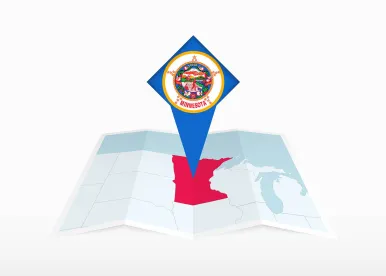We reported extensively on the landmark legislation passed in Maine in 2021, which was at the time the most far-reaching PFAS ban in the United States. Last week, Minnesota passed an even broader PFAS ban bill for the state that will have enormous impacts on companies doing business in or with the state of Minnesota, as well as on likely future consumer goods personal injury lawsuits. The Minnesota PFAS ban must therefore not be overlooked in companies’ compliance and product development departments.
Minnesota PFAS Ban
On May 25, 2023, Minnesota’s Governor signed into law HF 2310, which takes an approach that is to date the broadest PFAS ban in the country. While there are numerous state level bills that have passed banning specific product types that contain PFAS, Minnesota’s legislation bans intentionally added PFAS from thirteen different product types by January 1, 2025: (1) carpets or rugs; (2) cleaning products; (3) cookware; (4) cosmetics; (5) dental floss; (6) fabric treatments; (7) juvenile products; (8) menstruation products; (9) textile furnishings; (10) ski wax; (11) upholstered furniture; (12) firefighting foam and (13) food packaging. In addition, by January 1, 2032, all products sold within the state’s borders must contain no intentionally added PFAS, unless necessary for public health purposes.
In addition to the product bans, Minnesota’s new regulation follows in the footsteps of Maine in that it requires, by 2026, for any company selling products to the state to provide the state with information regarding the PFAS content in its products sold in the state. The purpose behind the information gathering component of the bill is to assist the state in understanding sources of PFAS in the state and to help determine whether or not a product has an unavoidable use of PFAS. The law enables the state to levy fines and penalties for non-compliance with any part of the law.
Issues That Could Arise
As with many state bills that have passed seeking to ban PFAS from various products, Minnesota’s bill uses language that bans “intentionally added PFAS” from products. But what is an “intentionally added” PFAS? In some instances, this may be obvious. The Minnesota PFAS ban includes a brief definition of the term: “PFAS deliberately added during the manufacture of a product where the continued presence of PFAS is desired in the final product or one of the product’s components to perform a specific function.” Many products, though, do not have “intentionally added” PFAS, so would seemingly not fall within the ban imposed by Minnesota. For example, a toy manufacturer who purchases a PFAS-containing paint product from another company to coat the toys. The PFAS used by the toy manufacturer was not “intentionally added.” It may have been by the paint manufacturer, but then the question will become whether the toy manufacturer utilized PFAS-containing paint and its use was “desired in the final product.” There are many such examples in commerce where the final product manufacturer may not use PFAS or intentionally add PFAS chemicals, but they intentionally use components or parts in which PFAS was intentionally added. Similar to many other states that have attempted to define “intentionally added” in the context of PFAS, the legislative intent and the state’s enforcement agency may interpret the definition more broadly than anticipated. In the short term, this many lead to company uncertainty and confusion over compliance.
Implications To Businesses From The Minnesota PFAS Legislation
First and foremost of concern to companies is the compliance aspect of the Minnesota law. The state continues to modify and refine key definitions of the regulation, resulting in companies needing to consider the wording implications on their reporting requirements. In addition, some companies find themselves encountering supply chain disclosure issues that will impact reporting to the state of Minnesota, which raises the concern of accuracy of reporting by companies. Companies and industries are also very concerned that the information that is being gathered will provide a legacy repository of valuable information for plaintiffs’ attorneys who file future products liability lawsuits for personal injury, not only in the state of Minnesota, but in any state in which the same products were sold.
It is of the utmost importance for businesses along the whole supply chain to evaluate their PFAS risk. Public health and environmental groups urge legislators to regulate these compounds. One major point of contention among members of various industries is whether to regulate PFAS as a class or as individual compounds. While each PFAS compound has a unique chemical makeup and impacts the environment and the human body in different ways, some groups argue PFAS should be regulated together as a class because they interact with each other in the body, thereby resulting in a collective impact. Other groups argue that the individual compounds are too diverse and that regulating them as a class would be over restrictive for some chemicals and not restrictive enough for others.
Companies should remain informed so they do not get caught off guard. Regulators at both the state and federal level are setting drinking water standards and notice requirements of varying stringency, and states are increasingly passing PFAS product bills that differ in scope. For any manufacturers, especially those who sell goods interstate, it is important to understand how those various standards will impact them, whether PFAS is regulated as individual compounds or as a class. Conducting regular self-audits for possible exposure to PFAS risk and potential regulatory violations can result in long term savings for companies and should be commonplace in their own risk assessment.




 />i
/>i

